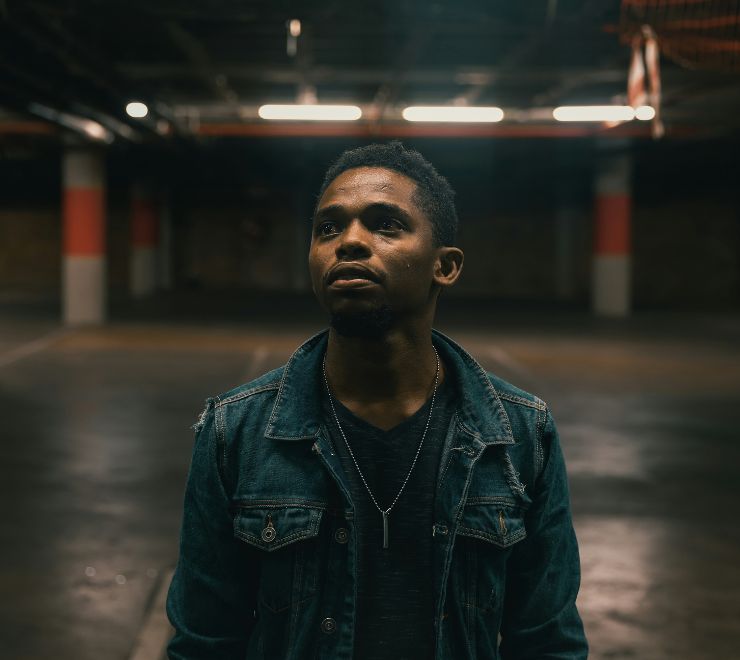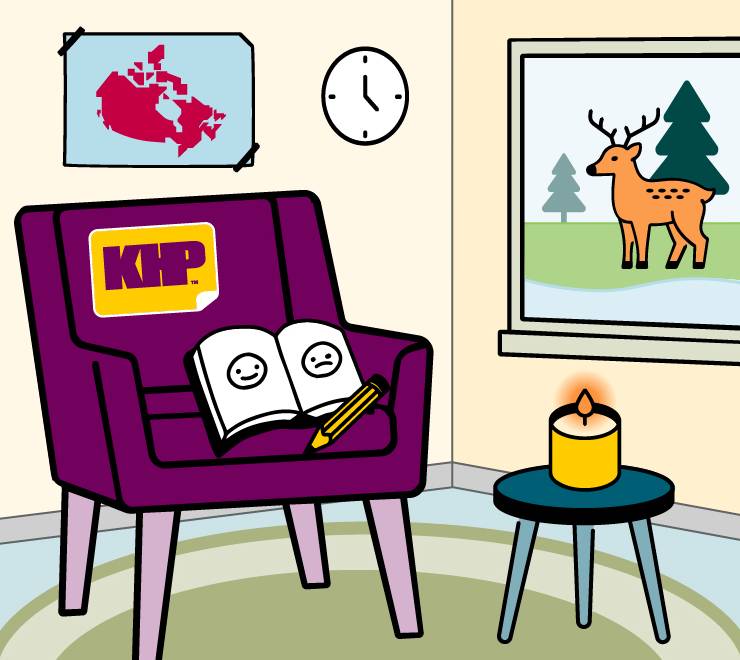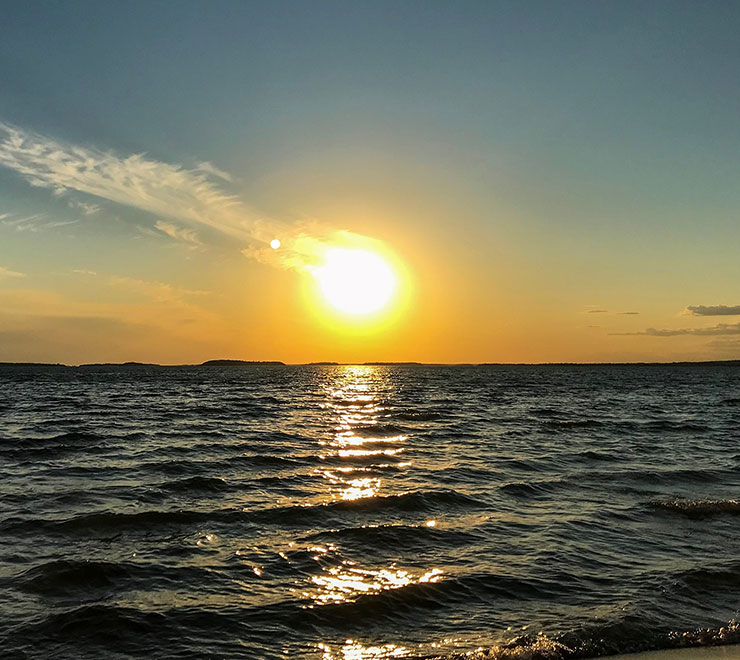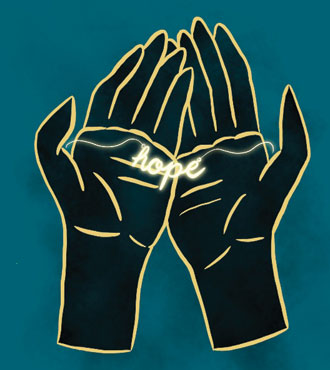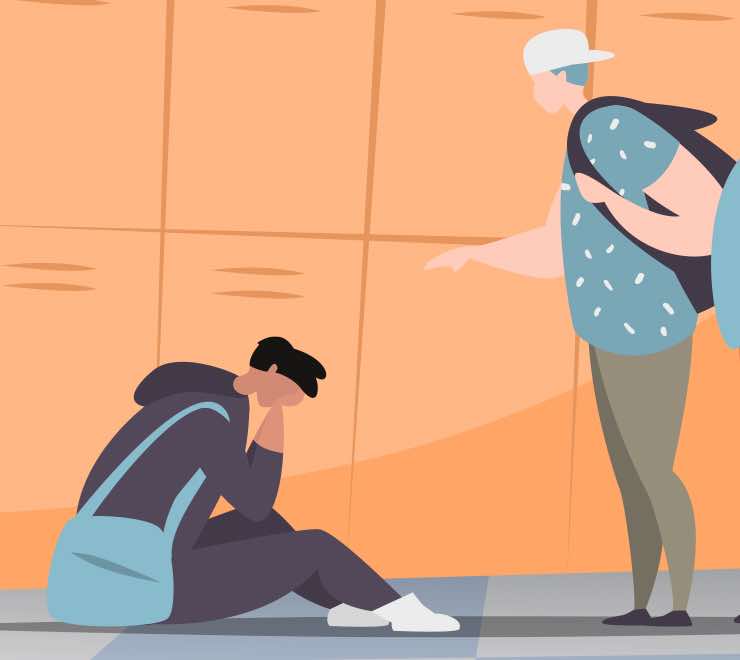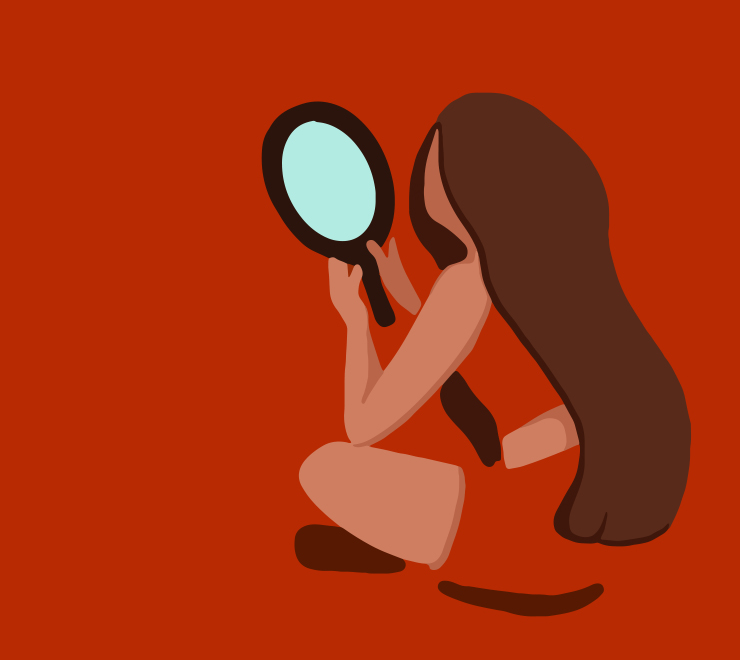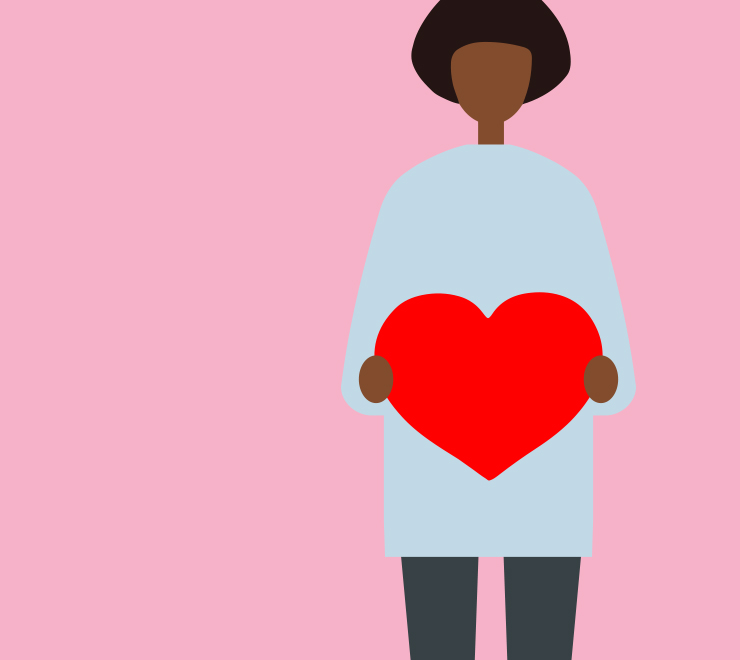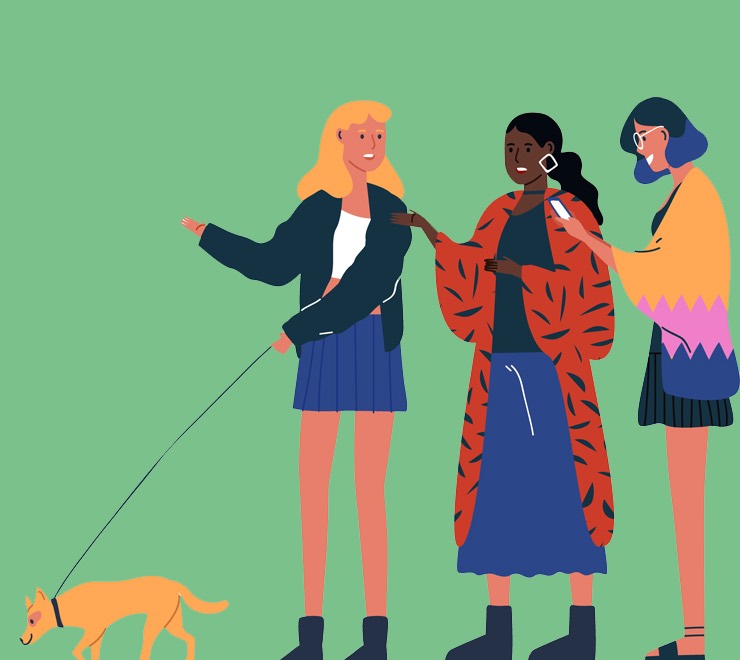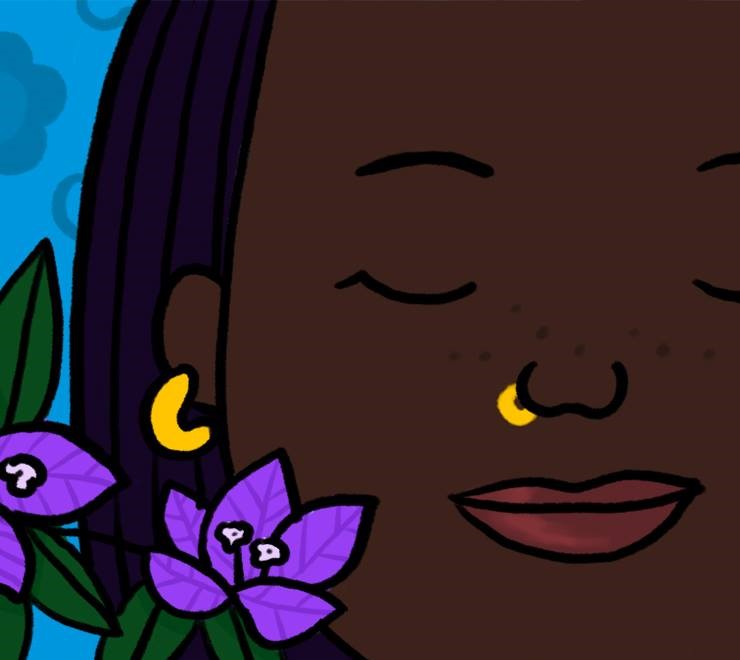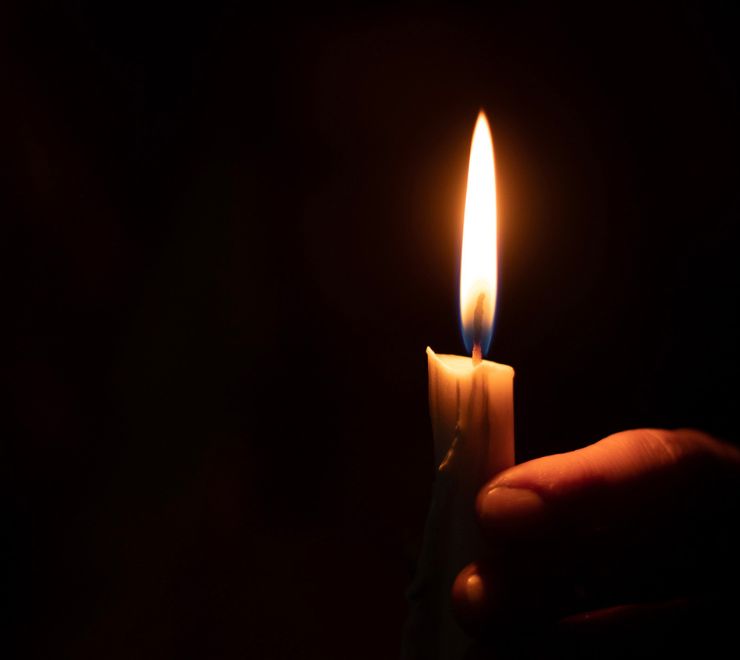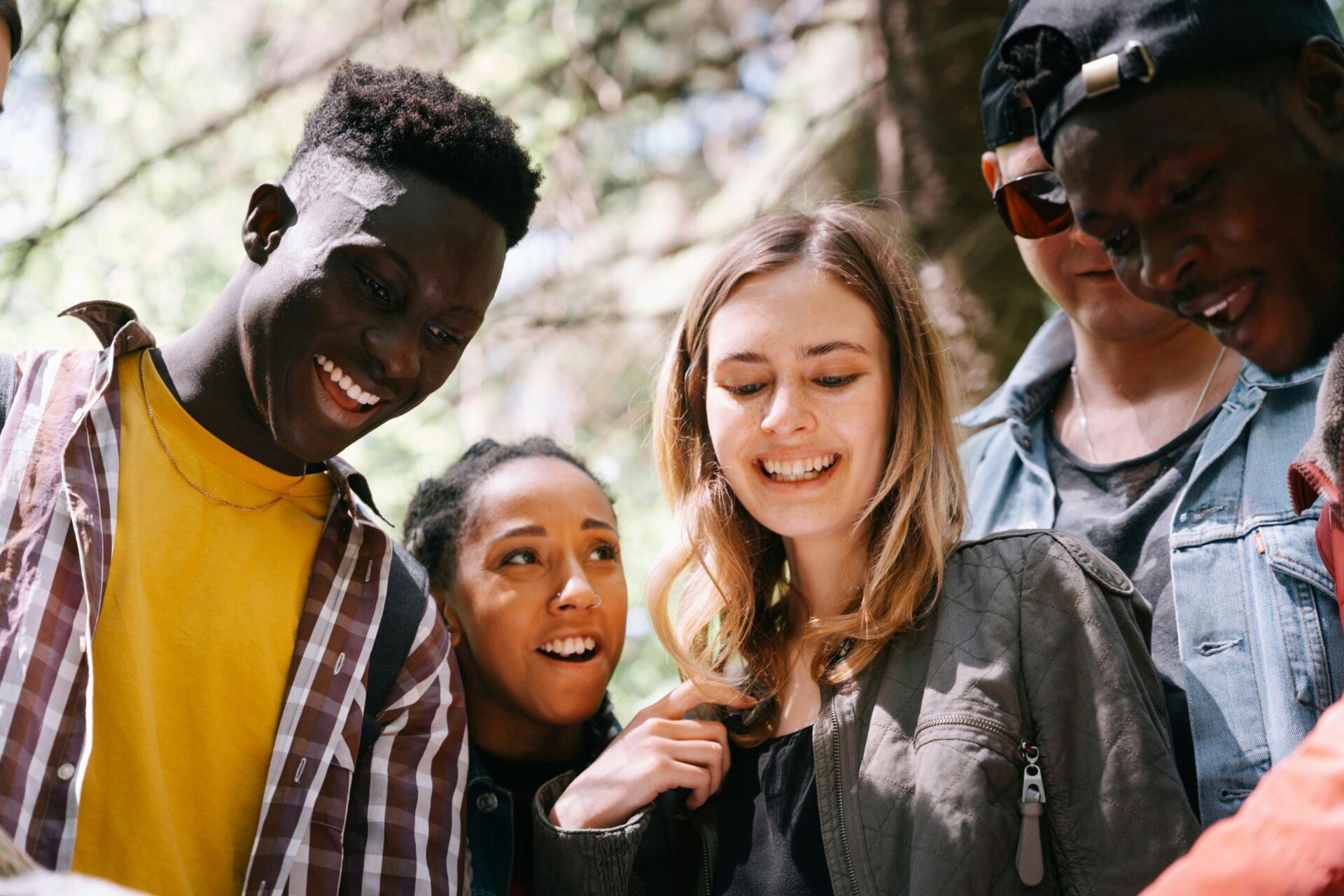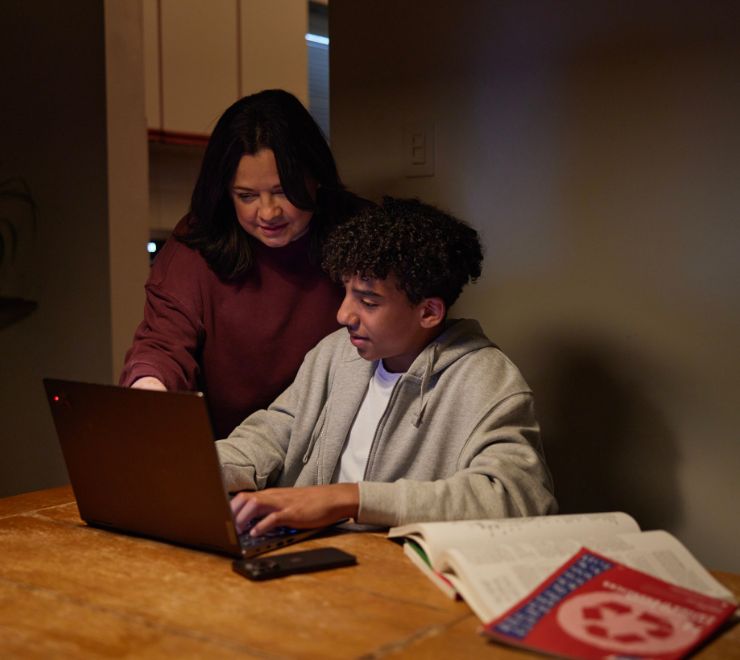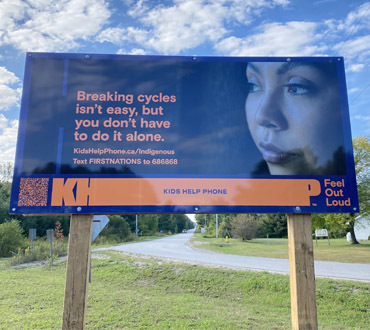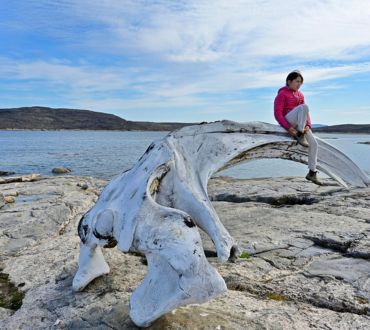This story was written by Danai Mushayandebvu (she/her), a social media brand marketer, writer, mental health advocate and founder of Forward Ever, Backward Never.
Illustration by Jennifer Chan
My family immigrated to Canada when I was 13 years old. Born in Zimbabwe, I lived in Botswana for eight years before we landed at Toronto Pearson Airport on a very cold winter evening. At 13, everything feels like an adventure. My parents explained to my siblings and me that we’d make a new life in this beautiful country that promised to be glorious and free, and while I was sad to leave the only life I’d ever known, with my family by my side, I knew no matter what life was about to come our way in Canada, we’d be OK.
Adjusting to a new life
During the first few weeks at my new middle school in a diverse but still very white-centric neighborhood in Mississauga, missing my old life, my old friends, and being consistently shocked by how cold Canadian winter was (I’m still shocked), I constantly felt like I was on display to be picked and prodded as that new girl from Africa.
People would say things like:
“But you speak English so well!”
“Can you do that clicking language?”
“Can I touch your hair?”
“You know who N*Sync are?”
“Wow look at that outfit, did you get that in BOTSwana?”
People were surprised that I was so well adjusted, on-the-pulse on all things popular culture, and eloquent. In many ways, I shattered the stereotypes of the poor African girls in those “for-the-cost-of-a-coffee-a-day” commercials. The reality of my life experience is that I went to some of the world’s top international schools, was well-traveled and was even asked to tutor English when I began school in Canada because I was advanced for my grade. My parents chose to move us to Canada not out of desperation but as an opportunity for their children to make the most of our lives. This is a promise that immigration often makes, but seldom keeps, as I would learn.
Navigating my identity
As the years went by, memories of my childhood began to fade. Because I only had my parents and siblings to fill in the gaps of my memories, I often wondered what was real and what I embellished in my own versions of the stories I retold. As I grew older, every question about my life felt less like fascination and more like an interrogation and invasion of my own experience. In order to avoid the discomfort of being recognized as “other,” and to compensate for the difficulties my parents faced I inadvertently unlearned my African self. I lost the accent I grew up with. While I was relieved to start sounding like my peers, looking back now, I realize that was a response to trauma.
Despite the inner turmoil I sometimes felt, I was always well-liked throughout school and in my part-time jobs. However, I often resented the unwarranted attention because it made me uncomfortable. So I swallowed the comments I’d receive, like being called the “Token Black Girl,” being told “I’ve never dated an African girl before, I wonder what it’s like” or “you’re really pretty for a dark-skinned girl.” I’d smile extra big when entering a store in the mall when suspicious eyes would profile me and wouldn’t retaliate so as to not perpetuate the “Angry Black Woman” trope.
I often felt at war with myself. I felt like I wasn’t really liked for being Danai, but for being a caricature and representation of who people thought I should be. Why was this new life that had promises of being better for us so hard? I often wondered what it would be like if I was just born in Canada, looking, talking and acting the same as the people around me. Would they still like me? At times I didn’t even know the difference. The confusion was enough to leave me wondering where I belonged. I felt as though I was only a box to be checked off; a quota to fill.
Wanting to fit in
Diversity is widely accepted and encouraged in Canada. It continues to set a world-class example by welcoming refugees and immigrants to rebuild their lives. In spite of all of that, it’s easier to blend in when the colour of your skin isn’t “of colour.” A friend of mine emigrated from Peru to Canada at a similar age. Moving here and adjusting to a new culture was challenging for her, but she has expressed shame in admitting that she is often relieved that her white features — blond hair and blue eyes — hide her otherness. She’s mentioned witnessing problematic conversations at the expense of immigrants, and while it saddens her, she has remained silent because sometimes it’s too tiring and painful to speak up against. It is tiring, I get it. She acknowledges how frustrating it must be for me to be asked, “where are you from?” based entirely on the colour of my skin, because she herself seldom — if ever — experiences what would be considered racial microaggressions, and goes unharmed never needing to explain herself.
The irony in this is that I love to talk, and I absolutely have stories to share. I love to connect, and even educate people about the realities of being born in Zimbabwe and living in Botswana. The balance of trying to fit in while wanting to share my unique story is a tough place to be in. Even just one careless, thoughtless comment brings me back to that 13-year-old who didn’t want to have different hair or a big vocabulary and a zest for life that would slowly be chipped away when the realities of the world came to face her.
Revisiting my inner child
Some days I’d daydream about the life I used to live, and for many years I used “When I Go Back Home [Botswana]” as a sign for this mystical moment in time where everything would be fine again. A couple of years ago, I did go back home. I traveled back to Botswana for the first time in 17 years, hoping there would be a piece of me there that would confirm that I once belonged there too. I visited my old elementary school and felt like a giant on this campus that once felt like my entire world when I was small. The familiar hallways and patches of grass and heat from the sun felt like a healing ceremony. I looked at one of the many murals on a wall and had a flashback that I contributed to this piece of art.
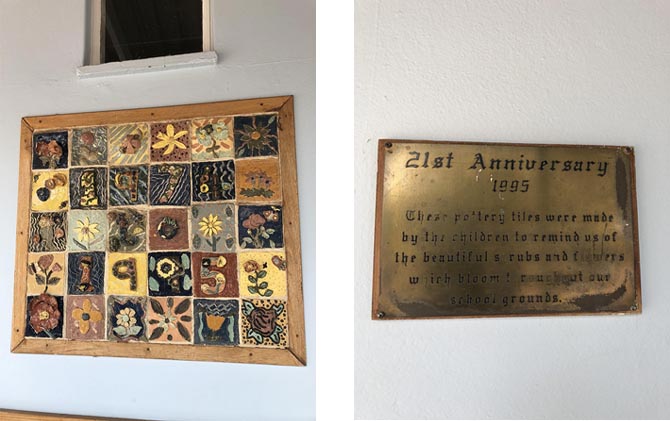
Pictured: Artwork from Danai’s elementary school and a plaque
I scanned it, looking for my name, my initials, anything. And there it was. A literal piece of me, in history.
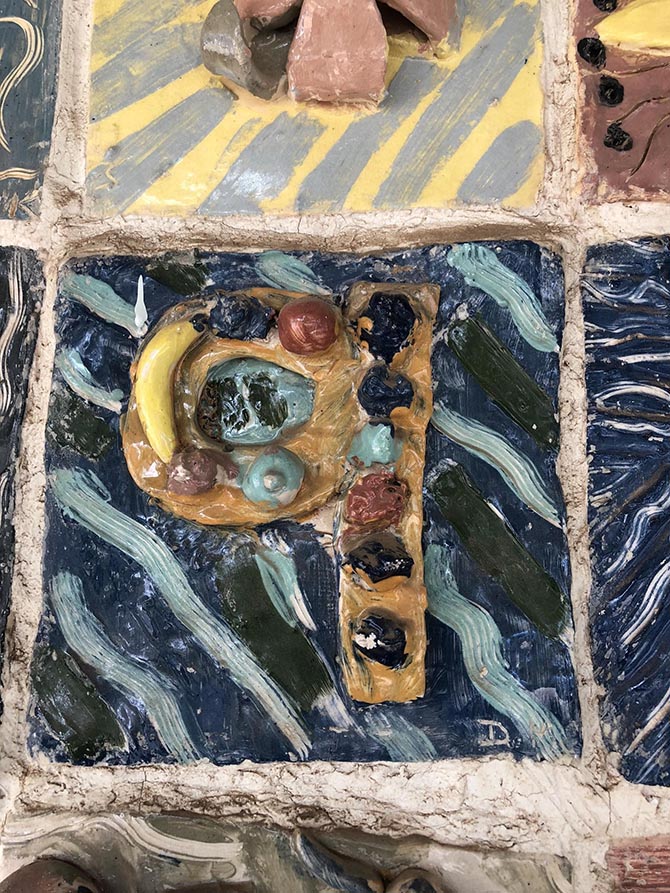
Pictured: A close of up Danai’s artwork
I remember the day I made that piece of artwork, and something clicked in me at that moment that my sense of belonging had nothing to do with this place or the moments I so desperately yearned for, but had everything to do with my relationship with myself. I could be Canadian, Zimbabwean, immigrant and Black and all it meant is that I belonged to me; not to a place, person or a moment in time. Since moving to Canada, and even before being an expat kid in Botswana, I consciously carry around the perspective of being “other” in a culture that has not seen or experienced anything different from their norm. It really is the reason I’m so empathetic to the struggles of the immigration experience, and why I’m so sensitive to the stories about identity, and care so much about sharing them. It is a tremendously difficult thing to move to a new country or city or place all while trying to preserve what you believe to be true but that others don’t understand. I know that feeling all too well.
Embracing my identity
I’m still trying not to place my worth in identifying as either Zimbabwean or Canadian. And while I’m a proud member of the BIPOC community, it’s OK for me to exist wholly as a human being. I am worthy to be respected and valued. Existing in the in-betweens of life means that I have free reign to carve out whatever life I want to create while always remembering my family’s journey to get to where we are. It’s a conscious decision every day to show myself grace for not knowing better when I was younger and giving me enough courage to stand up for myself and for those around me despite the confusions I’ve experienced. It’s taken me a long time to understand that.
When microaggressions happen to me — and they still do — I can’t help but think that what aggressors don’t realize is that careless comments or passing glares are not only harmful, but take away from the sacrifices that parents like my own made to ensure that I have the right to be standing on the same land they are standing on. I belong here, because I am a human being, not because of what I look like, sound like, can do for you, or how good I am. Simply because I do.
If you’re struggling with an issue — big or small — you can reach out to Kids Help Phone 24/7 by text and phone. We’re always here for you, from coast to coast to coast.
We’d like to thank Kids Help Phone influencer Danai Mushayandebvu for sharing her story of hope with young people across Canada!


